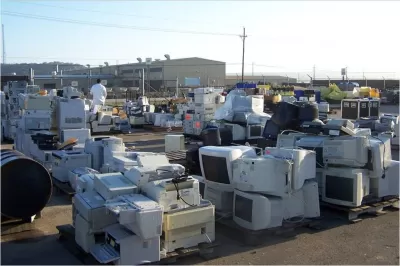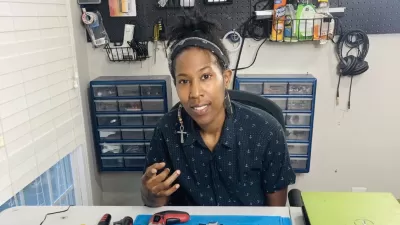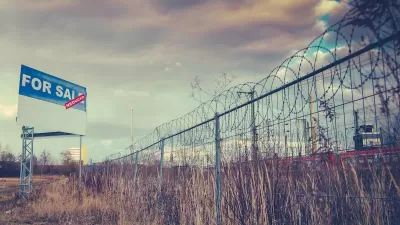When a watchdog group partnered with MIT to install trackers on a batch of e-waste, the results were sobering. Much of the haul left the country, ending up in Asian junkyards where unknowing workers are exposed to toxic substances.

Some hard facts, usually overlooked: "Dead electronics make up the world's fastest growing source of waste. The U.S. produces more e-waste than any country in the world. Electronics contain toxic materials like lead and mercury, which can harm the environment and people. Americans send about 50,000 dump trucks worth of electronics to recyclers each year."
This story for KUOW covers Seattle activist Jim Puckett, whose Basel Action Network recently "partnered with the Massachusetts Institute of Technology to put 200 geolocating tracking devices inside old computers, TVs and printers." The organization has released a video about the project.
According to Puckett's findings, many so-called recyclers in the United States are in fact exporters who don't care about what happens on the other end. "In a bear market for commodities, exporting waste is more profitable than processing it domestically. Recyclers simply fill a shipping container with whole electronics, and an e-waste broker arranges for pick-up."
In some cases, the conditions in developing world junkyards are deplorable. From the article: "Villagers desoldered circuit boards over coal-fired grills, burned plastic casings off wires to extract copper, and mined gold by soaking computer chips in black pools of hydrochloric acid."
Puckett's organization is named after the Basel Convention, an international treaty to prevent developed nations from dumping hazardous waste elsewhere in the world. The United States has not ratified the treaty, nor does it have any federal laws banning e-waste exports.
Of course, not all recyclers are engaging in this problematic activity: "Over the years Puckett's attempts to quantify and draw attention to exported electronic waste has drawn criticism from U.S. recyclers who say the problem has been exaggerated." But enough is going on to justify considerable environmental and human rights concerns.
FULL STORY: On the trail of America's dangerous, dead electronics

Alabama: Trump Terminates Settlements for Black Communities Harmed By Raw Sewage
Trump deemed the landmark civil rights agreement “illegal DEI and environmental justice policy.”

Planetizen Federal Action Tracker
A weekly monitor of how Trump’s orders and actions are impacting planners and planning in America.

Why Should We Subsidize Public Transportation?
Many public transit agencies face financial stress due to rising costs, declining fare revenue, and declining subsidies. Transit advocates must provide a strong business case for increasing public transit funding.

Understanding Road Diets
An explainer from Momentum highlights the advantages of reducing vehicle lanes in favor of more bike, transit, and pedestrian infrastructure.

New California Law Regulates Warehouse Pollution
A new law tightens building and emissions regulations for large distribution warehouses to mitigate air pollution and traffic in surrounding communities.

Phoenix Announces Opening Date for Light Rail Extension
The South Central extension will connect South Phoenix to downtown and other major hubs starting on June 7.
Urban Design for Planners 1: Software Tools
This six-course series explores essential urban design concepts using open source software and equips planners with the tools they need to participate fully in the urban design process.
Planning for Universal Design
Learn the tools for implementing Universal Design in planning regulations.
Caltrans
Smith Gee Studio
Institute for Housing and Urban Development Studies (IHS)
City of Grandview
Harvard GSD Executive Education
Toledo-Lucas County Plan Commissions
Salt Lake City
NYU Wagner Graduate School of Public Service





























